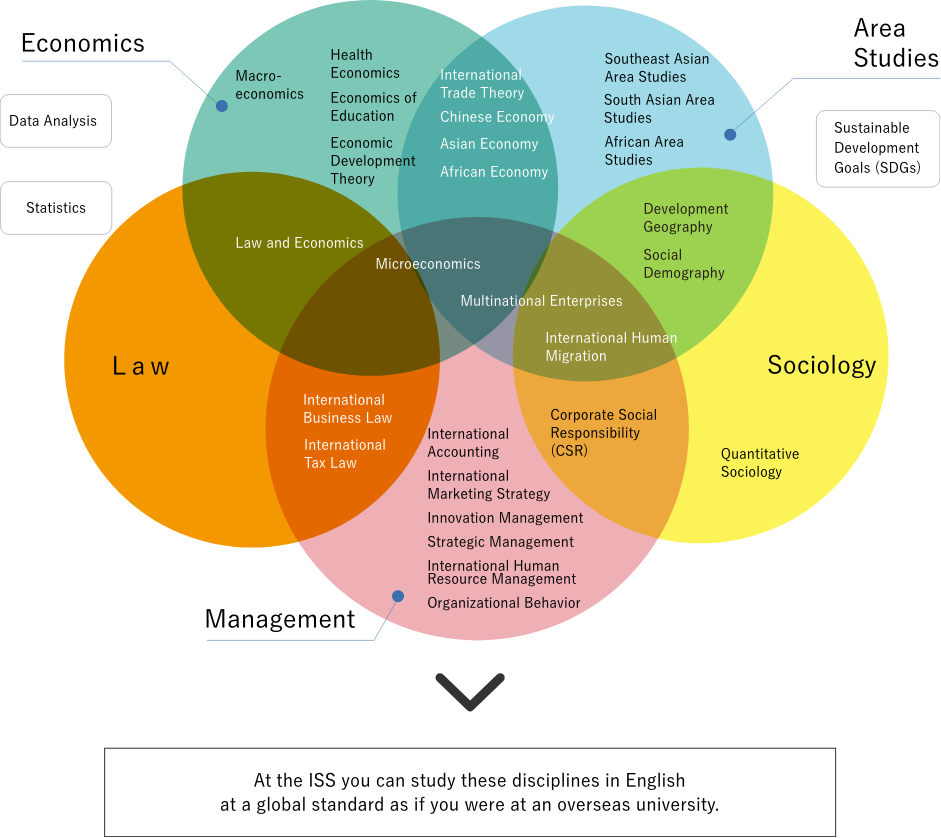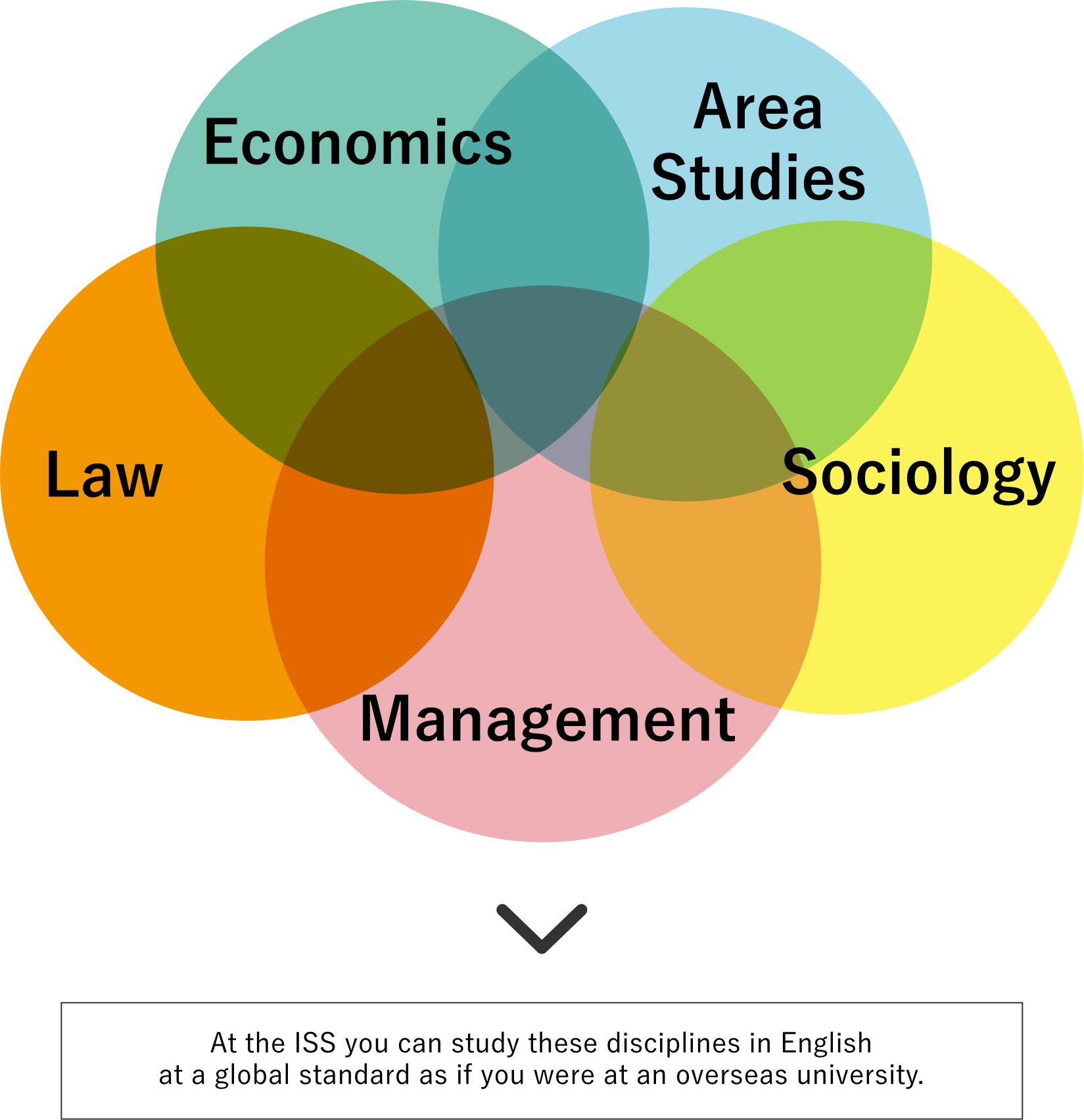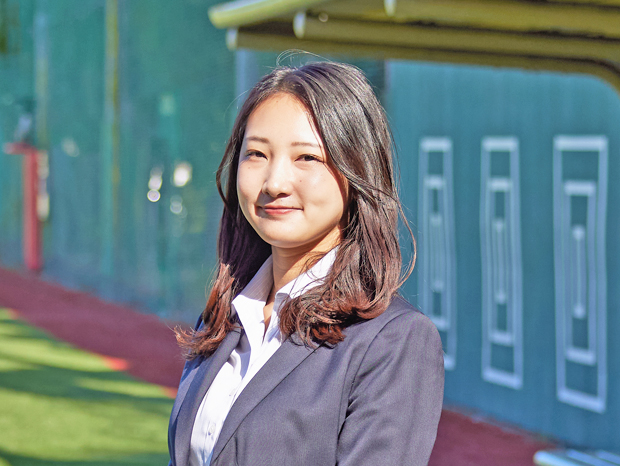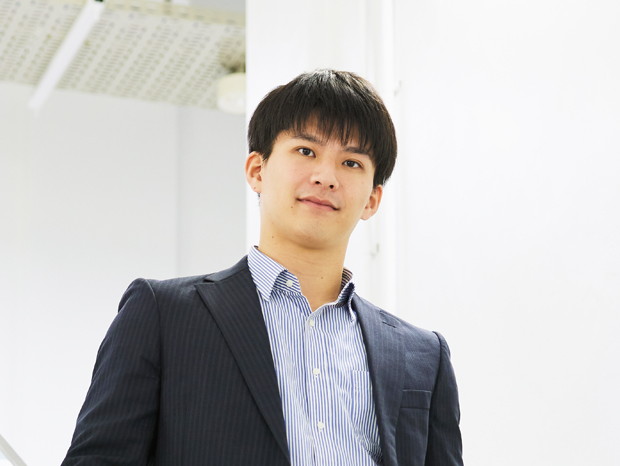
Gakushuin ISS:
The choice for a new generation
We have entered an era of thinking and acting internationally. Issues in the social sciences can no longer be addressed within domestic confines but in the context of engagement with the wider world. Issues in the social sciences must today be resolved on the global level.
At the same time, digital technology is advancing at a revolutionary pace. It is now essential to grasp the structure of society from an international perspective, addressing social issues through scientific, data-driven analysis.
Gakushuin University’s Faculty of International Social Sciences (ISS) supports global, interdisciplinary standards in five fields of social sciences: law, economics, management, area studies and sociology. We cultivate in students the ability to find solutions to the issues of the next generation, creating new points of contact with the international community.
Comprehensive Study of
Five Social Science Fields in English
What is happening in the world right now and where are we heading? Students will pursue interdisciplinary study of five fields (law, economics, business administration, sociology, and area studies) that are essential for identifying the world’s problems and finding ways to solve them. The ISS offers you the opportunity to study these disciplines in a comprehensive manner while putting your English-language skills to work.

A Curriculum That Steadily Builds Your Skills
Even for students who are proficient in English, understanding a lecture in English on a specialized topic is no easy matter. In the ISS, the curriculum begins in Japanese and moves gradually toward studying social sciences in English, providing you with a thorough grounding in your area of specialization.
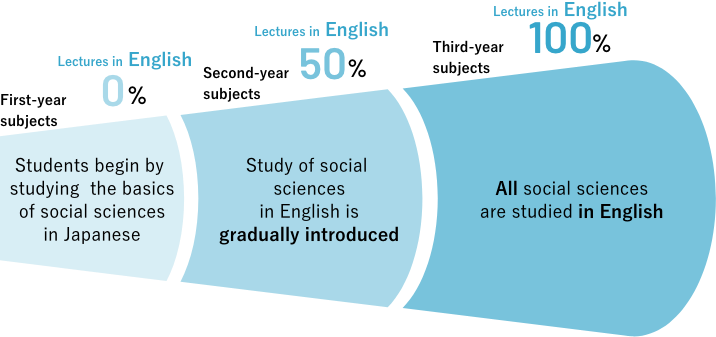
Expert Faculty
Each ISS faculty member is an authority in his or her field. Students cork closely with faculty members, so they can gain a broad-based understanding of the social sciences in general while deepening their understanding of fields of particular interest to them.

95% of Faculty Members Hold Degrees from Abroad
The ISS faculty is a diverse group whose accomplishments span the globe. Our professors boast experience at general trading companies and other businesses, international organizations such as the World Bank and government financial institutions.
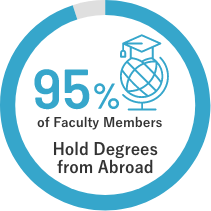
Deepen Your Understanding Through Small-group Study (Seminars)
All social science professors lead small study groups called seminars. Seminars enable students to learn directly from specialists in their field of interest while also studying any or all of the five social science fields.
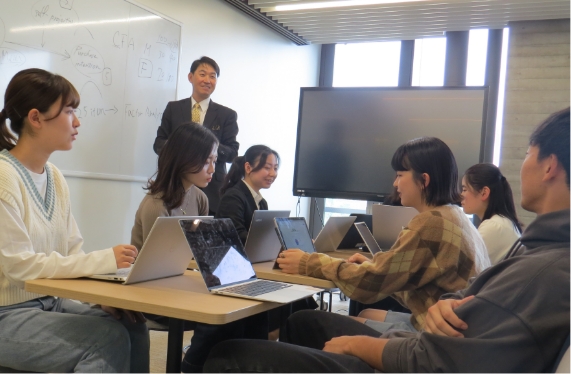
Tailor-made Approach to Language
Education for Studying in English
At the ISS, our aim is not only that students gain the proficiency to understand social science lectures in English, but also to acquire practical English skills as a tool so they can hold their own internationally.

Sharpen Four Key Skills with Six Units of English-language Classes in the First Year
In the first year, students will improve their English skills in all areas in preparation for study of social science subjects in English.
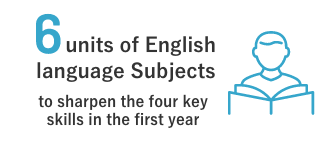
Practical English Study Through CLIL
English-language subjects at ISS are about much more than general English-language study. Our English classes prepare students for social-science studies in English by introducing terminology and themes that students will encounter in these courses. Our approach to language courses is based on the CLIL (Content and Language Integrated Learning) methodology developed in Europe.
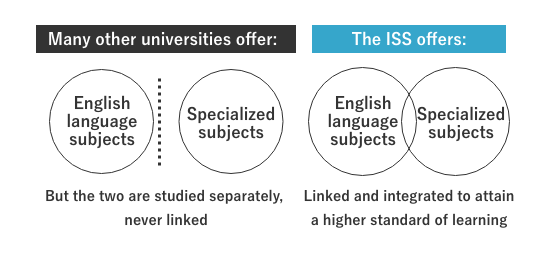
Flexible Study
Abroad Programs
All ISS students are required to complete a period of overseas study. Students who satisfy the criteria set by the ISS can study almost anywhere in the world. Study at a school in the country you are most interested in or most want to learn about.


Create Your Own
Four-year Curriculum
The ISS curriculum is designed to build your capabilities steadily. The four years of study are yours to design for yourself based on your own wishes andd needs. Plan your curriculum based on what you want to study and achieve.

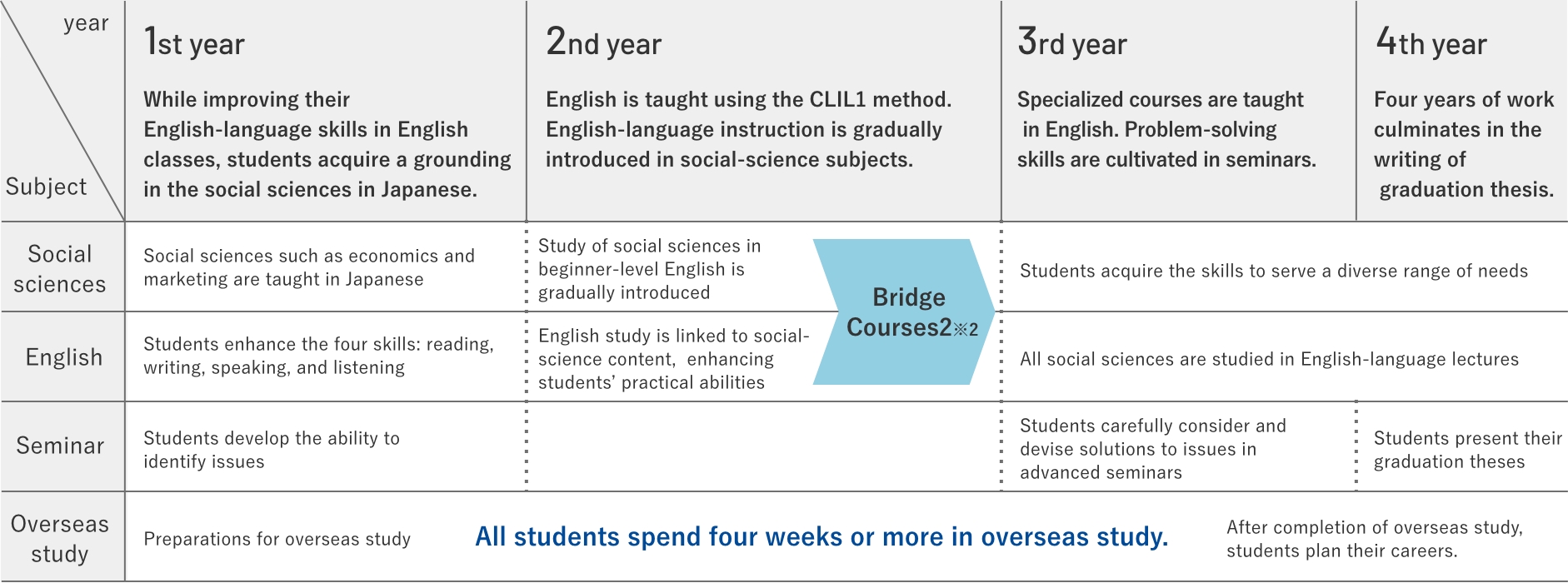

1 CLIL
CLIL stands for Content and Language Integrated Learning. In small classes of about 20 students, learners improve their English through repeated use of terminology and content from specialized subjects.
2 Bridge subjects
Students begin to study specialized subjects in English from the second semester of the second year. To facilitate this transition, in the first semester of the second year specialized subjects are taught in English for the first time. English classes dealing with the same themes further assist students’ understanding.
Case A

This student attended a wide range of classes in the five social sciences. Of these, she became particularly interested in economics and area studies. Subsequently she discovered the academic discipline that would be central to her studies.

One of the student’s professors, an authority on Asian regional studies, advised her that “it’s important to go there and see the region with your own eyes.” Heeding this advice, the student attended Assumption University in Thailand for one year.

Upon her return to Japan, the student intensified her study of Thailand by attending an advanced seminar. Through discussions, the student improved her knowledge of Thailand and developed her ability to express herself based on a variety of perspectives and her own observations.

As the culmination of four years of study, the student completed her graduate thesis on the subject of the Thai tourism industry. After her graduation, the student was hired by an automaker with strengths in the Asia/India region.
Case B

The student joined the ISS out of a desire to pursue an active role on the global stage after graduation. At first his proficiency in English was weak, so he attended six English classes per week to sharpen his English communication skills.

For half a year, the student attended the University of Oregon in the United States. He deliberately chose an area with few Japanese people so that he could live entirely in English. In the process he honed not only his language skills but also his planning skills and ability to get things done.

The student achieved significant improvement in his English proficiency, equivalent to a 290-point increase in TOEIC score from when he joined the University. Selecting an advanced seminar on the theme of “leadership,” he devoted himself to group studies.

The student had now spent a busy four years studying, improving his language skills, studying overseas and taking part in club activities. Following his original intention of playing an active role on the world stage, he joined a general trading company.
Alumni Voices
Career paths that span the globe
 Japanese
Japanese
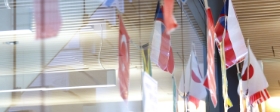
 Contact Us
Contact Us